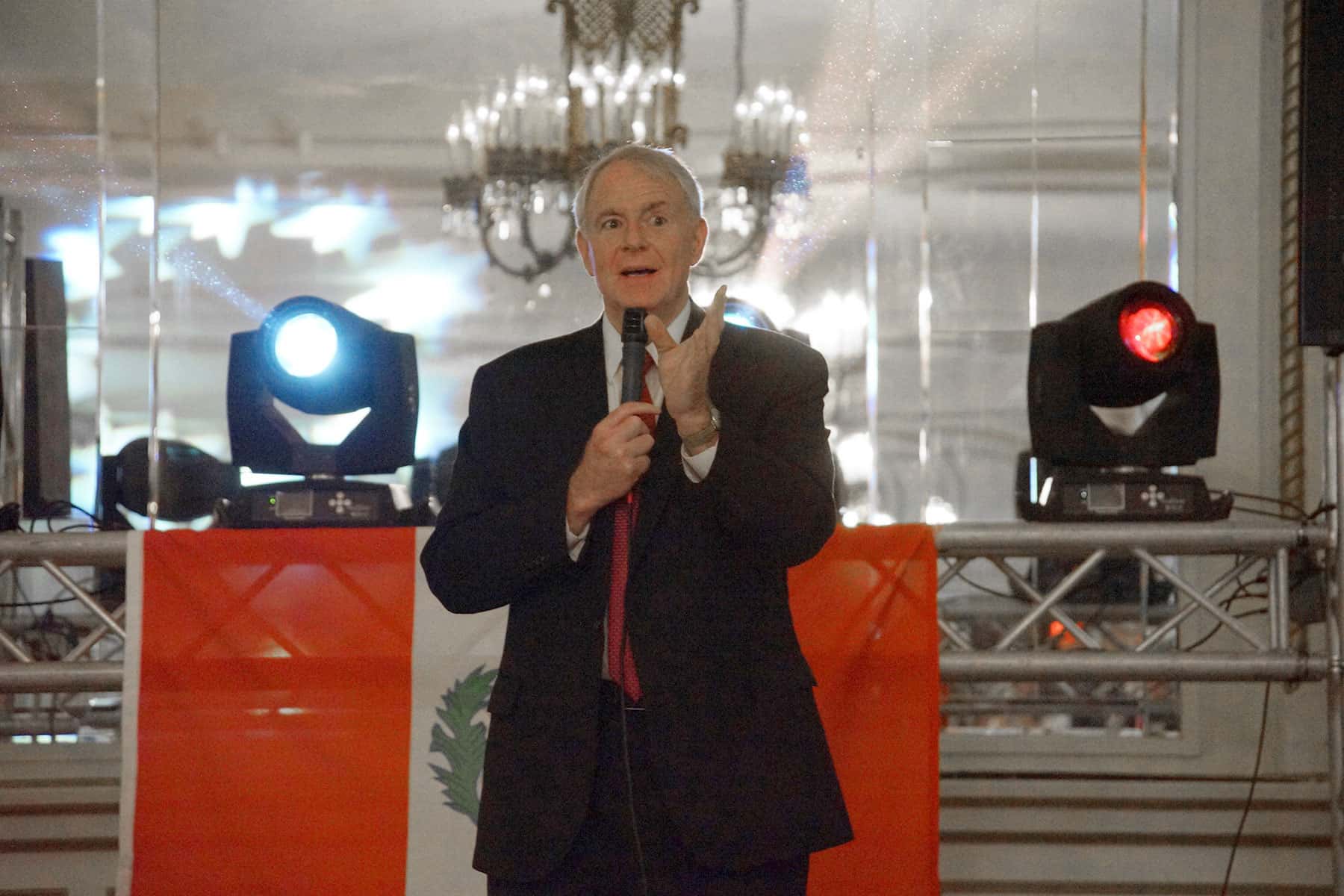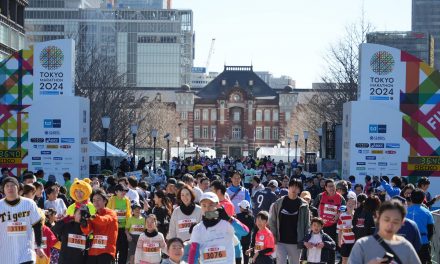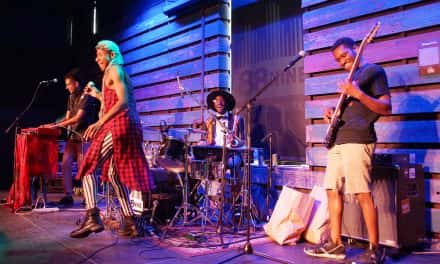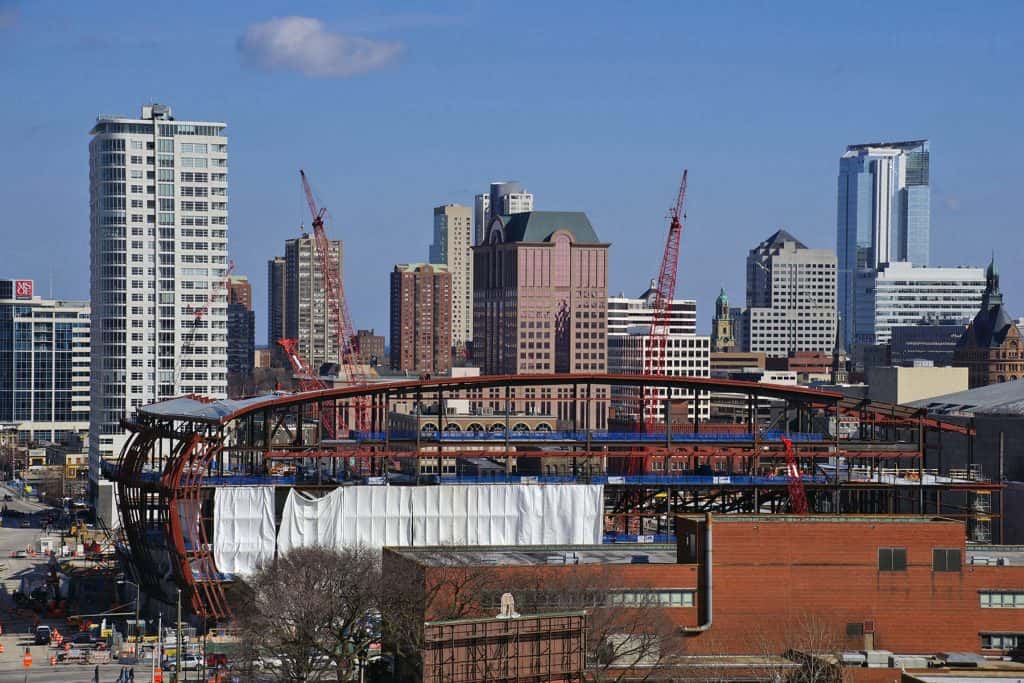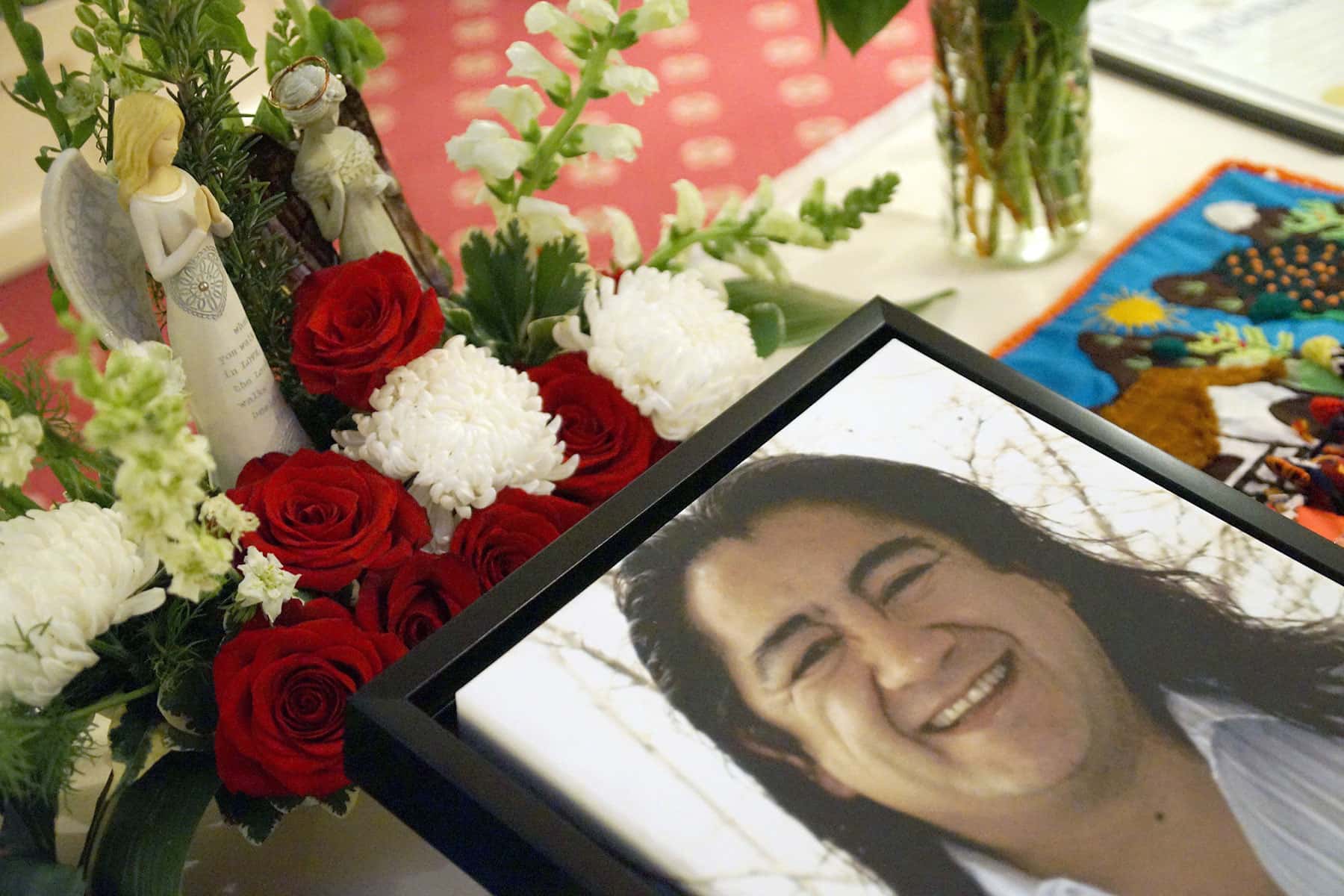
“His dream was for a better America for all minorities,” said Roberto Ruiz of his father, who Milwaukee knew as an activist dedicated to social justice. “He spoke up for people who were not comfortable speaking for themselves, whether it was the language barrier or just because they were afraid to share their opinion. I feel like he was one of the first Latino leaders in Milwaukee who fought for our rights.”
Juan Carlos Ruiz passed away in Milwaukee on March 3 at the age of 53. Family, friends, community leaders, and everyone who had their life touched by Ruiz were packed into the Astor Hotel on March 10 for the memorial service to honor the man many called a beacon of hope for the Latino community. Where few people have been able to bridge cultural divides, Ruiz built coalitions with others groups like the African-American and Jewish Communities.
“The untimely departure of Juan Carlos has shaken all of us. He advocated for immigration reform, developed and implemented programs like BlackTino, to bring African Americans and Latinos together around social justice issues, and Milwaukee Carnival to celebrate the diversity within the Latino community,” said Toni Rivera-Joachin, CEO of Centro Hispano Milwaukee. “We often worked together on projects like BlackTino and Milwaukee Carnival. He offered his help and support unconditionally and I will always be grateful for that.”
Ruiz had spent the past two decades as an activist for Latino causes and organizer for the immigrant community. In 1996 he helped organize the first national march for immigration reform in Washington DC.
“I remember standing with him at the capital as a teenager, surrounded by 60,000 people for the rally. Blocks and Blocks of people were packed into the area and I’ll never forget the way he was able to lead the crowd. I am so glad he took me out there to be a part of that,” said his son Roberto.
Advocacy of equal rights took Ruiz all over the country, and he became a national spokesman on the immigration issue. He believed strongly in democracy and the constitutional right of every one to vote. During election redistricting he worked to make sure Latinos were counted accurately for the census for fair representation.
“Juan Carlos was a dear friend who broke the mold of a community advocate. He was totally dedicated to his Community, generous of his time, influential and exceptionally connected. He was funny, gracious, caring, and friendly, but also could be combative and immovable on certain issues,” Israel Ramón, Partner at Ramon & Medrano, S.C. “All of these qualities made him unique and indispensable to our Community and Milwaukee as a whole.
“Juan Carlos was in the middle of everything as an organizer from the Southside. He never stopped smiling. Always hopeful and worked on cross-cultural projects to bring people together,” said Hannah Dugan, a local attorney. “His power was his presence, and now his sudden absence is a huge hole in the community.”
When asked his thoughts about others stepping in to continue Ruiz’s work, Julio Maldonado, Executive Director of the Cesar E. Chavez Drive BID replied, “I just spoke with Victor Huyke, Editor of El Conquistador about this and the Carnival. We agreed that maybe they, the newspaper, can continue to carry out his legacy with the carnival and parade.”
As recently as February 18, Ruiz was among the tens of thousands of supporters who rallied at the state capitol in Madison against Republican sponsored anti-immigration legislation.
“I hope that the people, especially younger Latinos, will look at the combination of his good character, excellent skills, combativeness and extra ordinary ability to help others and follow in his footsteps,” said Ramón. “Movements are not made by wallflowers. They are made by strong people with a purpose to improve the lives of others. He will be greatly missed.”
Since he was a young boy in Huancayo, Peru, Juan Carlos Ruiz was deeply committed to social justice. After studying Psychology at the National University of Federico Villarreal, he led efforts against the Shining Path, a Maoist guerrilla insurgent organization in Peru that was spawned during the internal conflicts of the 1980s. As the threats against his life increased from that work, he sought political asylum in the United States where he continued his activism.
Milwaukee Mayor Tom Barrett, who was then a Wisconsin Congressman in 1999, recognized Ruiz in the U.S. House of Representatives for having earned the Robert Wood Johnson Foundation’s Community Health Leadership Award, which is the nation’s distinguished citation for community health leadership.
“We lost a leader, we lost a beacon of hope,” said Roberto, “I would like to believe his dream has not passed away him.”
Donate here to the GoFundMe account established to help his family with the funeral costs.
View the images that were produced as a companion photo essay for this article.

